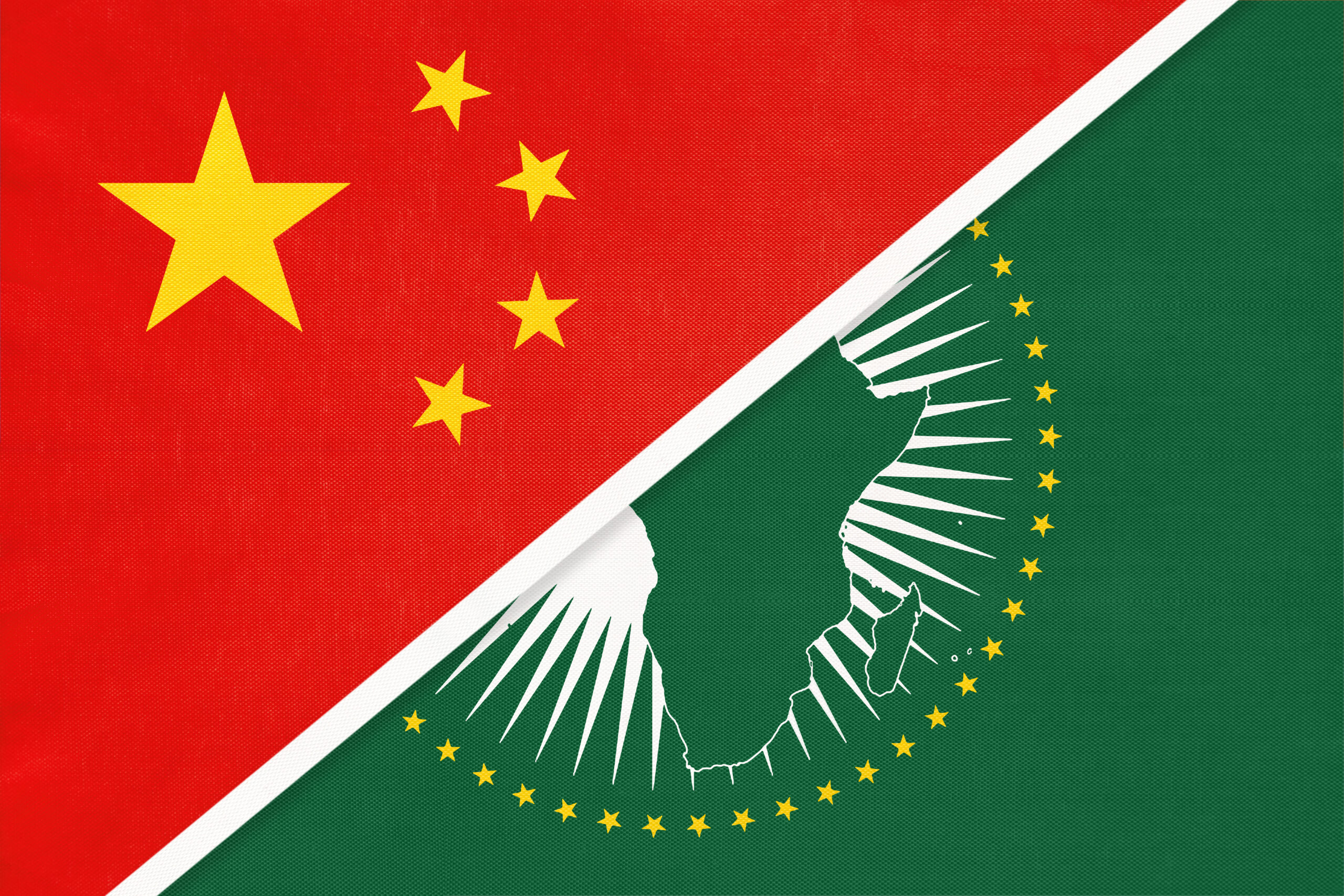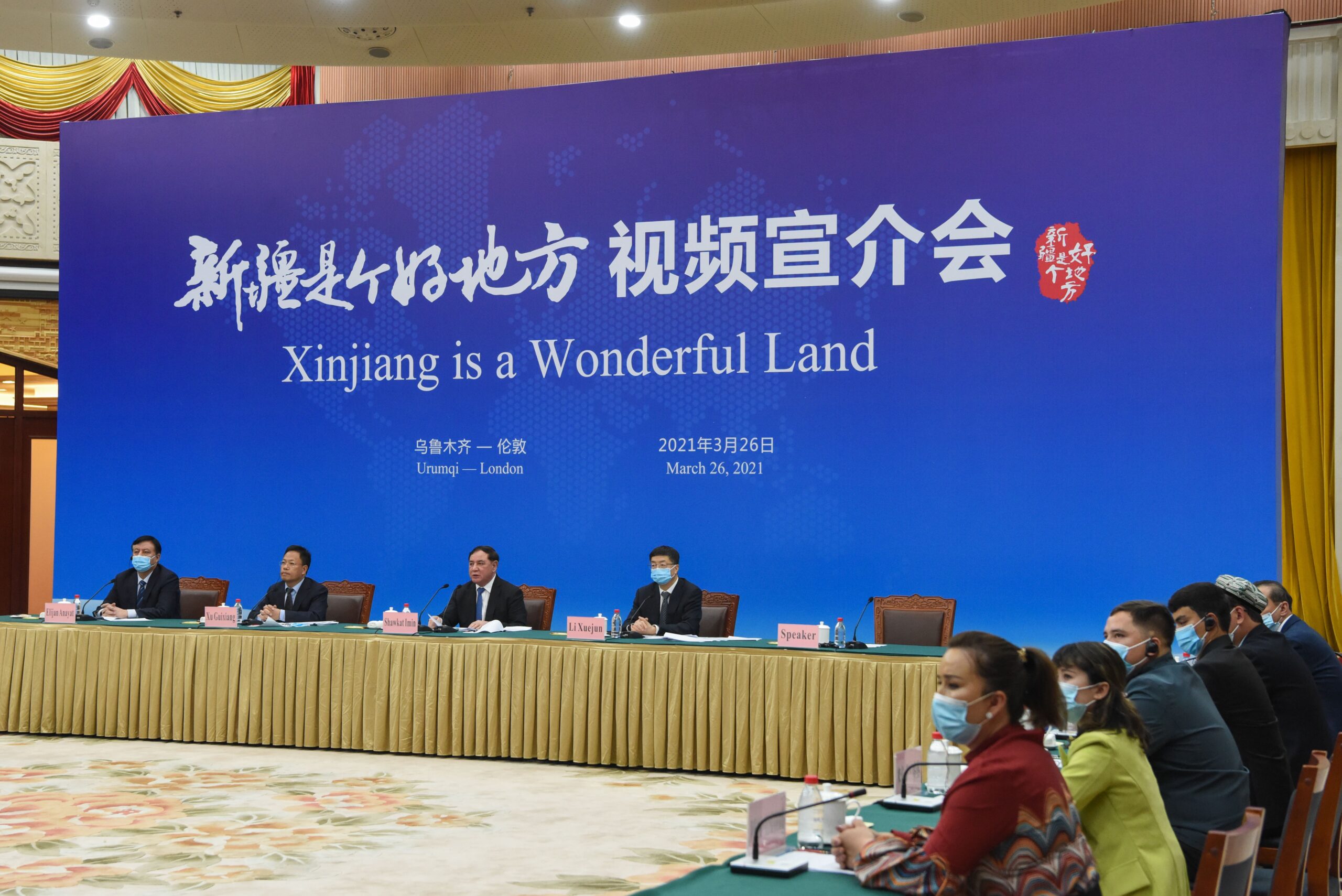By Emeka Umejei
Speaking before the Chinese Communist Party’s (CCP) National Propaganda and Ideology Committee in August 2013, General Secretary Xi Jinping decreed: “[We] must meticulously and properly conduct external propaganda, innovating external propaganda methods, working hard to create new concepts, new categories, and new expressions that integrate the Chinese and the foreign, telling China’s story well, communicating China’s voice well.”
Xi outlined this goal ten years ago and since that time his new, more ambitious approach to media and propaganda has been pursued by CCP-backed actors across the globe. This effort entails the establishment of tight control over domestic media environments as well as deep collaboration between the CCP’s state-run media organizations and local media outlets in countries around the world. One only needs to look at the systematic, troubling track record of domestic and foreign media repression within China to identify the CCP’s narrative expectations for media organizations worldwide.
Within Africa, the proliferation of media initiatives backed by the People’s Republic of China (PRC) has been long in the making but was accelerated by the financial stress inflicted upon the media sector across the continent by the COVID-19 pandemic. As a consequence, these PRC media conglomerates such as CGTN, Xinhua, and China Radio International have made significant inroads in Africa, and Beijing has leveraged local media enterprises to promote the Party’s preferred narratives. Furthermore, African press freedoms and journalistic practices have been undermined by the PRC’s media engagement, leaving the continent more susceptible to CCP propaganda about China and its engagement in Africa.
The Belt and Road Initiative: A New Platform for PRC Influence within Africa’s Media Landscape
When the PRC began expanding its media footprint across Africa in the 2000s, the Belt and Road Initiative (BRI) was in its infancy. Since that time, Beijing has wielded the BRI to exert political and economic influence in Africa and throughout the developing world. To garner African support for the BRI, the Chinese propaganda apparatus used a two-track approach. It relied on its state-led media organizations to win over hearts and minds in Africa, while also acquiring stakes in local media organizations to help amplify its preferred narratives and propaganda.
The PRC has long hoped to rival the U.S. and become the preferred partner for the African continent. To complement its high-level diplomatic outreach to African leaders, Beijing retooled its propaganda toolkit to better target African public audiences and expand its reach. For example, the CCP conducted media exchange programs for African journalists, established the Belt and Road News Network (BRNN), launched an initiative that brought 10,000 Digital Satellite TVs to African communities, and established the China-Africa media forum (CAMF). Critically, Beijing also has struck partnership and content-sharing agreements between the PRC’s state-run media and a number of African media organizations, such as Finder newspaper (Ghana), the Point newspaper (Gambia), and Seneweb (francophone Africa).
These PRC-backed channels of media-based engagement in Africa are often interrelated. For example, when a local media organization enters into a content partnership and agreement with a CCP-related entity, journalists from these media outlets are simultaneously afforded the opportunity to be nominated for fellowships in China.
Through these numerous channels of engagement, the CCP amplifies its preferred narratives about global events and influenced journalistic practices on the continent. The Belt and Road News Network was established in April 2019 to be the primary channel through which the CCP’s propaganda apparatus would positively frame events involving China and China-African relations. The BRNN, through its reporting trips, seminars, awards, access to news archives and databases, and training workshops and programs, provides a platform for these narrative-shaping efforts.
Additionally, African journalists participate in media trainings in the PRC, where they are encouraged to adopt PRC stances on international affairs and practices in conducting journalism—hardly a model that African democracies should be emulating. By encouraging African journalists to favor pro-Beijing narratives, the continent’s media sector can be encouraged to echo CCP propaganda, at the expense of independent journalism. Moreover, African journalists are introduced to the ‘positive reporting’ paradigm of journalism which encourages journalists to celebrate institutions rather than hold them accountable, further undermining media independence on the continent.
The PRC also uses content-sharing agreements to help spread narratives to audiences that China’s own outlets might not reach. These agreements established a variety of different relationships among African and Chinese entities, from state media-to-state media, to state media-to-private media, PRC missions-to-state media, and PRC missions-to-private media. Though Beijing claims that these initiatives benefit African media outlets, the latter’s efforts to report critically on China’s economic and political interests in Africa are ultimately thwarted by these agreements. For example, Kenya’s Standard newspaper lost its bimonthly financial supplement and related advertising revenue from the CCP when it published an investigative—and critical—report about Kenya’s PRC-funded Standard Gauge Railway (SGR) project. Beijing also demanded the news outlet drop all negative coverage of the railway and related issues. Such examples illustrate how the PRC can dictate the scope and nature of news coverage through these relationships with African outlets.
Ultimately, the CCP’s increasing footprint in African media erodes their independence, endangers the development of democratic principles within the media sector, and could, in turn, undermine African media’s ability to hold their governments accountable for their economic activities with the PRC. Local media organizations that enter into partnership with PRC representatives or entities could be obliged to publish favorable reporting about China, often turning a blind eye to the party-state’s anti-democratic behavior within China, Africa, or elsewhere. The local Chinese mission in Kenya’s decision to terminate its financial supplement agreement to the Standard newspaper for publishing its investigative report on Kenya’s SGR project epitomizes this behavior, but Freedom House’s 2022 Beijing Global Media Initiative report highlights others as well.
The Appeal of the PRC’s Media Exchanges
While state-funded media exchanges between African journalists and Western democracies are declining, the PRC is growing its outreach to African media professionals. In fact, the PRC’s funded media exchanges are one of the most expansive and lucrative state-funded capacity-building opportunities for African journalists. For instance, the 2019 cohort of a ten-month journalism fellowship program in China comprised 34 African journalists drawn from across the continent. This fellowship is only one of the many forms of media exchanges the PRC uses to exert influence over African media professionals.
Furthermore, African journalists who are invited to attend media fellowships in China face few—if any—administrative hurdles in acquiring visas; and once they are invited to the country by an organ of the PRC government, the likelihood that they will be granted entry is high. Thus, the program enjoys wide acceptance among journalists in Africa. Shorter term CCP-organized trips for African journalists to visit Beijing have only further increased the program’s broad support in Africa—and in turn, more favorable views of China on the continent.
Africa Media Vulnerability and Opportunities for Resilience
One of the overarching advantages of the PRC’s expansive engagement in Africa is that it superficially benefits two critical elements of the continent’s media ecosystem: local media organizations and journalists. On the one hand, it provides some financial support for local media and affords African journalists opportunities for career advancement and connections to Chinese society that is closed to most foreign journalists. If the CCP maintains its suite of opportunities for African media professionals and outlets, it will likely attract more media organizations from across the continent into the BRNN and other formal mechanisms.
Yet, the continuation of these exchanges leaves local African media organizations vulnerable to undue influence from Beijing’s preferred narratives. It leaves African journalists and their services available to the highest bidder—in this case, an authoritarian power bent on a highly controlled and propagandistic media ecosystem. As a consequence, independent media and public accountability in Africa are at risk.
To ease the financial impact of COVID-19 and other, long-term structural challenges African media organizations face, civil society and government should cooperate to create more funding opportunities for the continent’s local media organizations. Without such support, Africa’s media landscape will remain vulnerable to malign external influence. African organizations must also build greater resilience against CCP influence operations in Africa’s media ecosystem. Creating training opportunities that showcase how more democratic models for African journalists and other civil society actors that write and research about China’s engagement with the continent can thrive would be one effective path to pursue. Finally, Western democracies and media support organizations should increase professional engagements with African journalists and encourage them to use new technologies and media platforms that younger audiences rely on to publish their reporting. Taking these steps, among others, will allow African media to be more sustainable, competitive in the information marketplace, and ultimately operate under more democratic principles and practices.
Dr. Emeka Umejei is a leading scholar of Chinese media and Chinese digital infrastructure in Africa. He coordinates research activities at the Centre for Analysis of Authoritarian Influence in Africa in Johannesburg, South Africa. An expansive account of the PRC’s influence operations in African media is the subject of Emeka’s forthcoming book: Telling China’s Story in African Media (currently under review). Follow him on Twitter: @emekaumejei.
The views expressed in this post represent the opinions and analysis of the author and do not necessarily reflect those of the National Endowment for Democracy or its staff. Image Credit: Anastasiia Guseva/Shutterstock.






